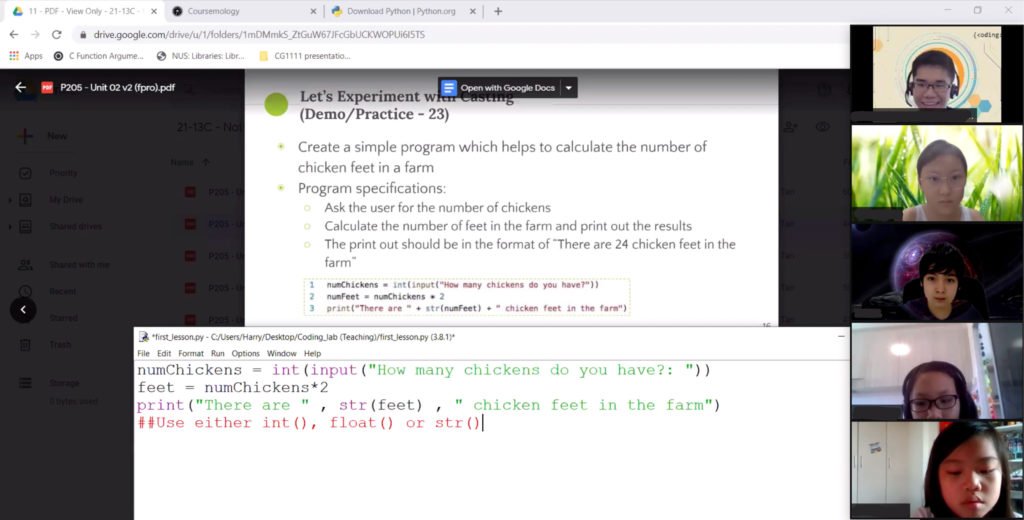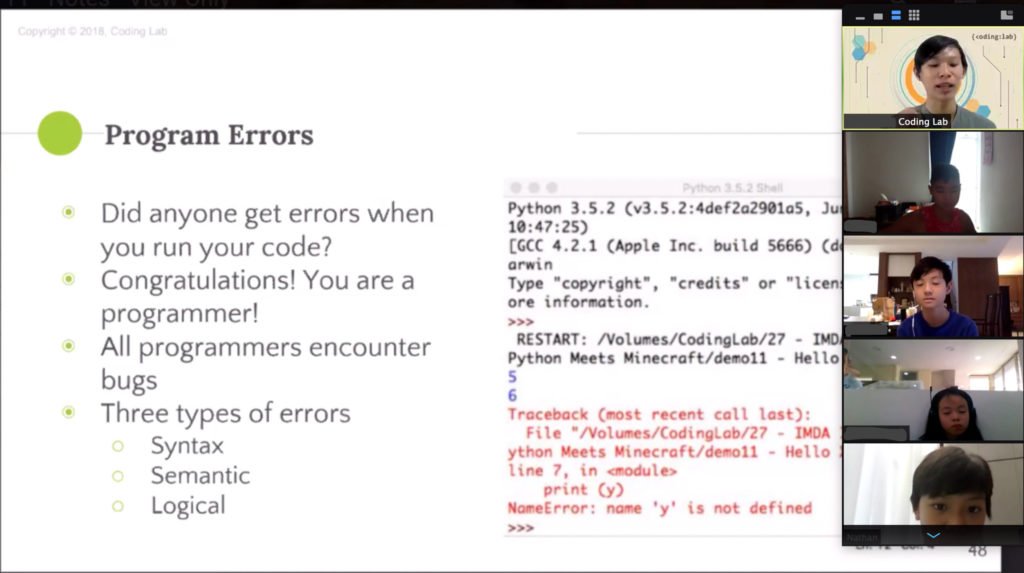Career Tips & Starting Salaries: How do Programmers Compare?
Due to the rise of the digital economy [1], the demand for tech jobs has increased tremendously. Among those in demand are programmers - but what exactly are the starting salaries of programmers, and how do they compare to those of other professions?
If you’re interested in pursuing programming in the exciting field of technology and wondering how it would fare for you, you’re in luck! We’ve done the research and here’s all you need to know about the starting salaries of programmers in Singapore (based on recent years).
We’ve also thrown in a few career tips for you budding programmers, so keep reading to find out!
In recent years, companies have been restructuring efforts in an increasingly digitalised economy. This has resulted in workers with tech skills being the most in demand [2] - particularly workers with the knowledge of programming languages, data science, AI and machine learning expertise.
The latest graduate employment survey released by the Ministry of Education (MOE) [3] - showed that students in the information and digital technologies sector posted one of the highest rates for full-time jobs and median gross monthly salaries in 2019.
Those in courses such as computer science, information security and software engineering cinched one of the highest median gross monthly pays of $4,400, with Engineering and Health Sciences following closely behind with the median gross monthly salaries of $3,750 and $3,500 respectively.
The figures reflect the high demand for IT savvy graduates as companies hope to use technology as a competitive edge [4] by digitalising their processes.
Distinguished billionaires Bill Gates and Mark Zuckerberg started coding at the tender ages of 13 and 10 respectively - so never think that you’re too young to start! MOE schools have even rolled out a compulsory 10-hour coding enrichment program for all upper primary students with effect from this year but in today’s day and age, we all know that it is still not enough.
Today’s technology has brought us far - classes can even be conducted online! So how do you know if your kid has the chops for programming? Here are some tips (Budding Teen Coders - this is for YOU!) if you are planning to get started or have already gotten into the thick of coding:
5 tips for budding programmers:
1. Build a strong foundation in logical thinking
You learn to walk before you run, so learn to master the basics first! With a strong foundation, mistakes such as writing more code than necessary or finding code solutions that are not optimal can be avoided. Focus on mastering logic and your computational thinking concepts to build a solid foundation. Python’s a good one to start off with. After that, it’s just a matter of getting used to the syntax of the different programming languages - Building a 3D Game? Designing your own Stock Rating Algorithm? Building your own Web App? The sky’s the limit!
Students in our S101 Python classes.
2. Work hard, work smart
The more practice you have under your belt, the better. Participate in competitions, get involved with different projects, or even volunteer for a local non-profit organization to write software or teach coding to kids. Be prepared to be amazed with what you will learn. You’ll not only gain exposure, but also get to build soft skills and gain a sense of accomplishment.
The bright participants of our Young Coders' Global Hackathon (YCGH ) Finals!
3. Never Give Up!
There will be times where you’ll feel frustrated when trying to solve a problem in your code - and that’s totally normal! The key thing is to never shut off when you experience such setbacks. Error messages in your code are not messages that you’re bad at coding, it’s telling you the code just isn’t working in the way that you thought it would. It’s fine - chances are, you’re closer to finding a solution than you were before.
Students learning about Program Errors in our Python classes held via Zoom.
4. Optimise code efficiency - Be a perfectionist
Everytime you learn something new, work on your efficiency. Don’t approach your code the same way with the newfound knowledge that you gain - use shortcuts and make yourself a cheat sheet so as to save time and energy. It’s also really important to take breaks every once in a while so that you’re constantly refreshed to do your assignments!
At Coding Lab, we enforce a 5 minute eye break for every hour of coding that our students get to safeguard their eye health and to also inculcate good habits from young. It also helps to keep our students energised during our lessons!
Image showing IB Computer Science/O-Level and A-Level Computing tuition
Students focused on their work in class.
5. What can I do better?
Never be satisfied with what you have done. Always ask yourself: “What can be done better?” - There is always something that can be improved. Continuous improvement is a key trademark of a good programmer.
Bought the expansion pack for League of Legends yet? Who doesn’t love the refreshed look of your phone or your laptop after installing an upgrade for iOs, Android or Windows? These updates are important and beneficial in strengthening your cyber security through processes such as the removal of bugs and outdated features as well as the addition of feature enhancements to your devices.
“Good specifications will always improve programmer productivity far better than any programming tool or technique.” - Milt Bryce
Put out questions, search for solutions and learn from the Internet. Code can always be shortened. Code can always be more optimised. And the beauty is in the final product and the work that you have done with your two hands at the keyboard, day and night.
And of course, our reliable tutors at Coding Lab are always dedicated to helping students learn coding in the best possible way - we infuse our students with enthusiasm and help to create the best learning environment for you to comfortably learn in. Make sure to check out our classes here.
Students waving hello as they join our online classes!
With the knowledge of starting salaries of programmers and these awesome career tips, we hope that these would motivate you in learning more and increase your passion for coding! After all, it’s our job to nurture future leaders in technology.
(Written by Zulaikha)






